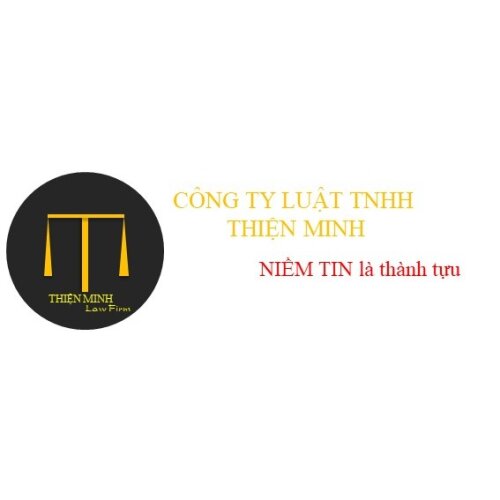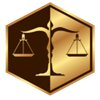Best Trusts Lawyers in Vietnam
Share your needs with us, get contacted by law firms.
Free. Takes 2 min.
Or refine your search by selecting a city:
List of the best lawyers in Vietnam

About Trusts Law in Vietnam
Trusts are not a widely established concept in Vietnamese law as they are in common law jurisdictions. In Vietnam, the civil law system governs property and asset management, offering different mechanisms like civil contracts, wills, and inheritance to serve similar purposes as trusts. However, foreign individuals and entities may encounter trust-like arrangements, especially in investment contexts. The closest equivalent to trusts may be found through asset management companies and related contractual agreements.
Why You May Need a Lawyer
If you are navigating the legal landscape of Vietnam concerning property and asset management, a lawyer can be invaluable. Common scenarios include:
- Decoding complex inheritance laws and ensuring assets are distributed according to your wishes.
- Structuring investments in a manner that aligns with local regulations.
- Understanding and negotiating terms in real estate deals involving multiple parties or interests.
- Ensuring compliance with local laws in cross-border transactions or when establishing a custody arrangement for foreign investments.
- Mitigating risks and protecting assets within Vietnamese jurisdiction.
Local Laws Overview
Key aspects of local laws pertaining to trusts include:
- Civil Code: Governs legal matters related to ownership, inheritance, and contract law, which are often referred to when understanding asset arrangement practices that may resemble trusts.
- Land Law: Critical for real estate management and ownership, essential for establishing any real estate-related trust or asset management strategy.
- Company Law: Important for setting up a legal entity that may serve as a protector or manager of assets in a trust-like role.
- Foreign Investment Guidelines: Necessary for foreign trustees or beneficiaries dealing with assets in Vietnam.
Frequently Asked Questions
1. What is the closest thing to a trust in Vietnam?
The closest equivalent would be contracts and agreements through asset management companies that perform similar functions.
2. Can foreigners create a trust for assets in Vietnam?
Foreigners can manage assets through contractual arrangements and consult legal expertise to navigate regulatory compliance.
3. What are the inheritance laws regarding trusts?
Inheritance is governed by the Vietnamese Civil Code, allowing individuals to dictate asset distribution via wills.
4. Are there tax implications for trusts in Vietnam?
Vietnamese tax laws must be followed for assets, with potential implications differing for foreign entities and residents.
5. How can a trust protect assets in Vietnam?
While traditional trusts aren't available, legal arrangements can provide similar protections through strategic structuring.
6. Do Vietnamese laws recognize offshore trusts?
Vietnam doesn't recognize offshore trusts, but contractual arrangements can help manage cross-border assets.
7. How do I structure a trust-like entity in Vietnam?
This involves creating agreements with asset management firms and possibly setting up business entities to manage assets under Vietnamese law.
8. Will a Vietnamese court recognize a foreign trust?
Typically, Vietnamese courts do not recognize foreign trusts, focusing instead on local civil and contractual law frameworks.
9. Can a trust be used to manage land ownership?
Land ownership can be managed through land use rights and legal entities, rather than trusts directly.
10. How do trusts handle beneficiaries under Vietnamese law?
Beneficiaries are handled through specific legal arrangements such as wills and inheritance laws, with varying structures based on the relationship and residence of beneficiaries.
Additional Resources
Consider contacting these organizations for assistance:
- Vietnam Bar Federation: Offers access to licensed lawyers knowledgeable about local law and asset management.
- Ministry of Justice: Provides guidelines and regulations related to civil matters, including contracts and inheritance.
- Vietnam Investment Review: Offers insights on asset management and legal frameworks for investors.
- Local legal firms: Seek out firms specializing in property and inheritance law.
Next Steps
If you need legal assistance with trusts in Vietnam, consider taking the following steps:
- Identify your specific needs and the assets you wish to manage or protect.
- Research and shortlist legal professionals or firms specializing in Vietnamese property and contract law.
- Schedule consultations to discuss your requirements and evaluate their legal strategies.
- Engage a legal expert to draft necessary documents and guide you through compliance with Vietnamese law.
By following these steps, you'll ensure that your assets and interests are effectively managed within Vietnam's legal framework.
Lawzana helps you find the best lawyers and law firms in Vietnam through a curated and pre-screened list of qualified legal professionals. Our platform offers rankings and detailed profiles of attorneys and law firms, allowing you to compare based on practice areas, including Trusts, experience, and client feedback.
Each profile includes a description of the firm's areas of practice, client reviews, team members and partners, year of establishment, spoken languages, office locations, contact information, social media presence, and any published articles or resources. Most firms on our platform speak English and are experienced in both local and international legal matters.
Get a quote from top-rated law firms in Vietnam — quickly, securely, and without unnecessary hassle.
Disclaimer:
The information provided on this page is for general informational purposes only and does not constitute legal advice. While we strive to ensure the accuracy and relevance of the content, legal information may change over time, and interpretations of the law can vary. You should always consult with a qualified legal professional for advice specific to your situation.
We disclaim all liability for actions taken or not taken based on the content of this page. If you believe any information is incorrect or outdated, please contact us, and we will review and update it where appropriate.
Browse trusts law firms by city in Vietnam
Refine your search by selecting a city.














